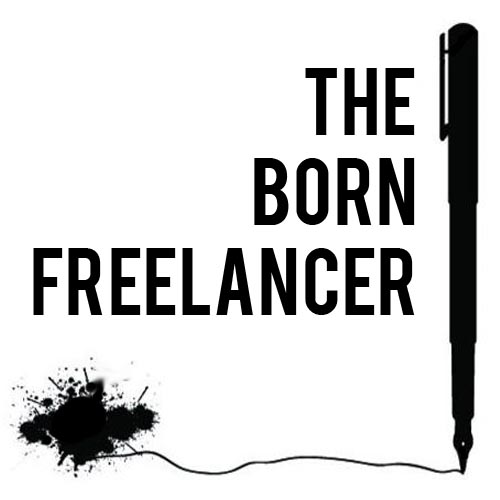Sunny Widerman’s tax tips for creatives
It’s nearly April, freelancers. Which means it’s time to start thinking about preparing your tax return.
A few weeks ago, CMG Freelance ran a tax tips webinar for our members with Toronto tax specialist Sunny Widerman. To help get you into the tax filing mindset, here are a few of Widerman’s top tips from that webinar.
First of all, Widerman recommends you avoid the trap of thinking that doing your taxes is an annoyance that’s taking you away from your work: she says that spending time organizing and understanding your finances will help you run your business better.
Claiming expenses
When it comes to your tax return, self-employed people who work from home can claim a portion of certain living expenses. For renters, that will be a percentage of your utilities and rent. For owners, it’s a percentage of your utilities, property taxes, and the interest on your mortgage (but not the mortgage itself). You can also claim all or part of your internet connection and phone line — although Widerman says it’s best not to write off all of your telephone costs. Your research expenses might include cable bills if you work in television, and, for writers, any magazines and newspapers that you buy.
Filing tax returns
Off The Wire: News for the Canadian media freelancer Mar 22-29
Once a week, we gather stories about the media business, journalism, writing, publishing, and freelancing—with a Canadian focus—and share them in Off the Wire. Who needs a water cooler?

From Canada:
- First winner of the Ali Mustafa Memorial Award named [J-Source]
- Publishing and ‘unpublishing’ in the digital age [J-Source]
- Toronto Star delivering the newspaper on tablet, but its audience may be on a different screen [Ryerson Review]
- Five things Canadian freelancers need to know about filing their taxes [Canadian Business]
From The U.S. and beyond:
- Unhappy freelancers invited to submit ‘World’s Longest Invoice’ [New York Daily News]
- Even busy freelancers can’t afford to skimp on these 4 things [Freelancers Union]
- Meet the woman drowning out the trolls that harass female journalists [Poynter]
- For me, traditional publishing means poverty. But self-publish? No way [The Guardian]
- Testing its pay-per-article model in English, Blendle launches in U.S. with 20 publishers [Nieman Lab]
- 6 Actionable Steps to Attracting Higher Paying Freelance Clients [Creative Live]
- Why Isn’t Your Editor Answering Your Pitch? It’s Complicated [The Freelancer]
- Why Your Personal Essay Pitch Needs Both Substance and Style [The Write Life]
- How to make thousands in new income with just a few words [Freelancers Union]
- 3 Ways to Turn Freelance Writing Jobs into Stable, Recurring Work [The Write Life]
Last week on Story Board:
- Freelancers in conflict zones still waiting for fair treatment from the industry: The world is becoming an increasingly dangerous place for journalists. According to the Committee to Protect Journalists, 622 journalists have been killed as a result of their jobs over the past ten years…
- Digital media workers are unionizing like it’s 1999:Gawker Media’s editorial staff ratified their first union contract on March 1 with their collective bargaining representatives at the Writers Guild of America…
- Unpaid Internships, A People’s History: Today, Ontarians—especially those in female-dominated fields like nursing and education—complete 100,000 illegal unpaid internships each year…
Spot a story you think we should include in next week’s Off the Wire? Email the link to editor@thestoryboard.ca or tweet us at @storyboard_ca.
Freelancers in conflict zones still waiting for fair treatment from the industry
by Rachel Sanders
The world is becoming an increasingly dangerous place for journalists. According to the Committee to Protect Journalists, 622 journalists have been killed as a result of their jobs over the past ten years — nearly twice as many as the previous decade. What’s more, nearly 200 journalists are currently in prison worldwide.
And conflict zone journalists have harrowing stories to back up the numbers. Mohamed Fahmy, the Canadian journalist who spent nearly two years in prison in Egypt after being arrested in 2013, says working conditions for journalists in conflict zones are worse than he’s ever seen them.
“Hotspot areas have never been this dangerous,” Fahmy told Story Board via Skype last week.
“In the past it used to make a difference when you wore the flak jacket — a signature that said we were press — to protect ourselves. But now it actually makes you a target.”
He said things have changed for journalists since the Arab Spring began in 2010.
“More journalists are being targeted by groups and governments because they’ve realized how journalism can actually topple regimes,” he said.
Fahmy was released from prison in September 2015. He hasn’t yet started working as a journalist again. He’s focusing his energy currently on the Fahmy Foundation, the organization he founded to provide financial assistance to unjustly imprisoned journalists.
“When you’re in prison, whether you’re a freelancer, whether you’re staff, if you are a prisoner of conscience and you’re in that cell you need all the support you can get,” he said.
Read the rest of this post »
Digital Media Workers Are Unionizing Like It’s 1999
This post is the third in a series called “E-Lancer Writes,” exploring the working conditions, rights, and collective organizing strategies of freelance journalists, interns, and other low-wage or temporary digital media workers.
By Errol Salamon
Gawker Media’s editorial staff ratified their first union contract on March 1 with their collective bargaining representatives at the Writers Guild of America, East (WGAE). In addition to including important economic gains, the contract features innovations for workers at media startups that could set sector-wide standards. But digital media workers in the United States have a longer history of union activity in The News Guild-Communications Workers of America (TNG-CWA) from which organizers could also learn.
The Gawker contract includes at least four major innovations, reflecting the realities of the digital workplace:
- Editorial independence: decisions about posting editorial content online—such as a story or part thereof, or a headline—can be made only by editorial employees, and content can be removed only by a majority vote of the Executive Editor, the CEO, and the General Counsel;
- Republishing: employees have the right to publish books based on the material that they create for the company and collect 100 percent of the royalties;
- Contract employees (“permalancers”): night and weekend contractors must be paid the same rate as non-contract employees after working at Gawker for one year, after which they must be offered full-time positions or be terminated; and
- Diversity: the company must meet regularly with the union’s “editorial diversity committee” to discuss diversity in hiring and other ongoing issues.
Gawker may have set off a wave of unionization at online news companies in 2015, but digital media workers have been organizing since 1995. Here’s a brief history of efforts to unionize digital newsrooms over the past 20 years.
Read the rest of this post »
Unpaid Internships: A People’s History
by Sara Tatelman
When Ross Perlin told his grandparents about his first internship, they thought he was becoming a doctor. And fair enough—until the 1970s, the word “intern” primarily referred to freshly minted MDs practicing under supervision. And they were always paid.
Perlin, author of Intern Nation: How To Earn Nothing and Learn Little in the Brave New Economy, was speaking at the Pay Your Interns Summit in Toronto on March 12. The event was organized by filmmaker Cynthia Pandev and included a screening of her film Pay Your Interns!
Today, Ontarians—especially those in female-dominated fields like nursing and education—complete 100,000 illegal unpaid internships each year, said Schenella Pinto, director of research and labour policy at the Canadian Intern Association, in the panel discussion following Perlin’s lecture. Under provincial law, unpaid internships not part of an academic program are prohibited unless they meet six strict criteria, including not benefitting the employer in any major way.
But unpaid internships are “saving companies in the U.S. something like $2 billion a year in wages,” Perlin said. “As internships have gotten global and are now in every country you might think of, that’s billions and billions that are being saved in labour costs.”
That ties into employers’ changing attitudes, he added. Internships spread into corporate America in the 1940s, but they were paid transitional periods between education and work, and employers focused on recruitment. But today, such precarious work is normalized.
Read the rest of this post »
Off The Wire: News for the Canadian media freelancer Mar 15-21
Once a week, we gather stories about the media business, journalism, writing, publishing, and freelancing—with a Canadian focus—and share them in Off the Wire. Who needs a water cooler?

From Canada:
- Aspiring Toronto Star interns no longer have to provide a photo of themselves with their application [J-Source]
- CBC to require online commenters to use real names [CBC]
- John Cruickshank stepping down as Toronto Star publisher [Globe and Mail]
- Navigating the freelance jungle [J-Source]
- Why podcasts are a part of CBC’s digital future [J-Source]
- U.S. fund manager GoldenTree seeks buyer for stake in Postmedia [Globe and Mail]
From The U.S. and beyond:
- What an upcoming U.S. government survey will mean for freelancers [Fast Company]
- 6 Ways to Never Miss a Deadline Again [Mediabistro]
- 8 Reasons Your Pitch Got Rejected and How to Fix It, According to Top Editors [The Freelancer]
- How to Be a Freelance Writer: Skip These 10 Embarrassing Mistakes [The Write Life]
- 7 Tips for Conducting Efficient Interviews — and Impressing Your Sources [The Write Life]
Last week on Story Board:
- SABEW Canada’s second annual Best in Business awards night April 20th: The Canadian chapter of the Society of American Business Editors and Writers (SABEW) is holding its second annual Best in Business writing awards night on Wednesday, April 20th…
- The Born Freelancer on Using an Alias: If you work simultaneously in a number of different genres and need to separate and differentiate career strands or if you simply want to help build a more focused, memorable brand you may want to consider using an alias…
Spot a story you think we should include in next week’s Off the Wire? Email the link to editor@thestoryboard.ca or tweet us at @storyboard_ca.
SABEW Canada’s 2nd annual Best in Business awards night April 20th
 The Canadian chapter of the Society of American Business Editors and Writers (SABEW) is holding its second annual Best in Business writing awards night on Wednesday, April 20th at Valdez (606 King Street West).
The Canadian chapter of the Society of American Business Editors and Writers (SABEW) is holding its second annual Best in Business writing awards night on Wednesday, April 20th at Valdez (606 King Street West).
Tickets are $25 for members and $40 for non-members. The event starts at 6 pm. Food and drinks will be served.
You can reserve your ticket for the event on SABEW Canada’s Eventbrite page. Check out SABEW Canada’s website for information about the organization, and contact them at sabewcanada@gmail.com with any questions.
The Born Freelancer on Using an Alias
This series of posts by the Born Freelancer shares personal experiences and thoughts on issues relevant to freelancers. Have something to add to the conversation? Your input is welcome in  the comments.
the comments.
• If you work simultaneously in a number of different genres and need to separate and differentiate career strands;
or
• If you simply want to help build a more focused, memorable brand;
you may want to consider using an alias.
I think the first time I used an alias professionally was when I got my first on air job in radio. My program director had a thing about changing the names of his on air staff to names that sounded better. It also had added advantages which I was to learn about as time went by.
Today I choose to use the name at the top of this column in order to write these posts with maximum freedom about all aspects of my freelancing life and to have these words judged solely on their merit rather than on any reputation (good or bad) I’ve acquired elsewhere.
So I’m a big advocate of using different names for different kinds of projects.
Why?
Your name is your most important brand.
To get maximum impact your brand needs to be focused, consistent and promoted. Let me explain how using various aliases may help achieve these goals.
Off The Wire: News for the Canadian media freelancer Mar 8-14
Once a week, we gather stories about the media business, journalism, writing, publishing, and freelancing—with a Canadian focus—and share them in Off the Wire. Who needs a water cooler?

From Canada:
- Chronicle Herald union says company refused call back to bargaining table [CBC]
- Objective journalism disappearing but that’s OK says Pulitzer Prize winner [CBC]
- Chronicle Herald strike stretches into seventh week [J-Source]
- Dear Media Entrepreneurs: It’s time to look north [J-Source]
- Why Gawker’s First Contract Is a Blueprint for Unions [The Tyee]
From The U.S. and beyond:
- How to Become a Freelance Writer That Editors Will Want to Hire Over and Over [The Write Life]
- Is Solutions Journalism the Solution? [Nieman Lab]
- Pay doesn’t look the same for men and women at top newspapers [Washington Post]
- In the Age of Sponsored Content, What’s Ethical for Freelance Journalists? [The Freelancer]
- 5 Ridiculous Excuses About Your Late Payment [The Freelancer]
- The rise of the creative class is the end of retirement [The Kernel]
Last week on Story Board:
- Tips for making it as a freelancer in Canada: CMG Freelance and CWA Canada hosted an event for media workers at The Company House in Halifax last week, focusing on workers’ rights and making it in the industry as a freelancer…
- Vice freelancers, the Canadian Media Guild wants to hear from you: If you’re a regular freelancer for Vice Canada, the Canadian Media Guild would like to hear about your experiences and working conditions…
Spot a story you think we should include in next week’s Off the Wire? Email the link to editor@thestoryboard.ca or tweet us at @storyboard_ca.
Tips for making it as a freelancer in Canada
Media workers meet in Halifax to discuss worker’s rights
By Rebecca Hussman
CMG Freelance and CWA Canada hosted an event for media workers at The Company House in Halifax last week, focusing on workers’ rights and making it in the industry as a freelancer.
The event began with a brief presentation on building a sustainable career in the media by CMG organizer Buffy Childerhose and Katherine Lapointe of CWA Canada.
The presentation started with a tip that’s especially relevant for media workers in the province right now, with the ongoing strike at the Chronicle Herald: value your work and worth.
“The [striking workers] will only be able to negotiate a fair contract with support from the entire media community. And in turn, freelancers and students will stand to benefit from a contract at the Herald that sets fair rates of pay and protects good jobs for the next generation,” Lapointe said.
“The more we can work together the better for us all.”
Childerhose says the most important thing a freelance media worker should remember is: always get it in writing. If no contract is provided, freelancers should at least lay out the terms previously agreed upon in an email to protect themselves. This ensures that there is a copy of the agreement in writing should any issues or disputes arise.
Read the rest of this post »





